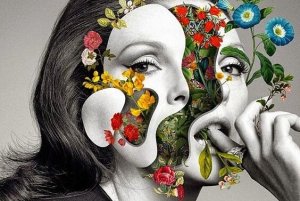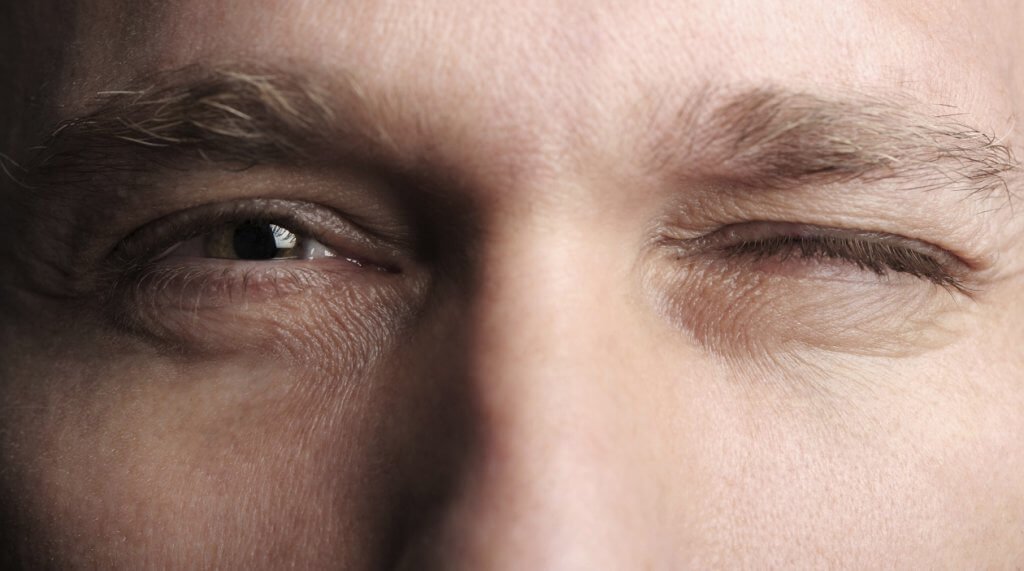5 Expressions That Encourage Distrust

There are social situations where the interactions are brief and short-lived. Other people form an idea of us that’s partly conscious and partly not. They form an opinion based on what we say, but also form one based on what we express through our expressions and postures.
“Being perceptive means being able to spot the contradictions between someone’s words and their body language.”
This wouldn’t be a problem if it weren’t for the fact that a lot of those short-lived moments are also extremely important. It could happen in a work interview or a private meeting for establishing contacts that interest us. And, why not, those situations where we want to make a good impression on someone who interests us emotionally. In this case we want the other person’s experience to give them a pleasant and positive feeling about us.
That’s why it’s worth learning to recognize our expressions and decode what they mean. It’s also important that we be able to polish them up so they’ll play in our favor when the situation calls for it. In order to achieve this, we’re about to look over the expressions that hurt us and the ones it’s good to recreate.
1. Biting Your Lower Lip, one of the “Give Away” Expressions
When you bite your lower lip, in one way or another you’re communicating a certain degree of disagreement with what’s coming out of your mouth. Without either you, or anyone else, being conscious of it, it’s one of the expressions that’ll be interpreted as doubtful or fake in view of what your’e saying.

This expression also indicates there’s a hidden message. People usually say “I bit my lips so I wouldn’t talk about this or that thing.” That’s an incorrect interpretation. When you make that expression you’re suggesting there’s something you’re hiding which would contradict what you said to some extent.
2. Constantly Furrowing Your Brow
A furrowed brow is a sign of anger, annoyance, or disagreement. Truthfully it’s one of the expressions that we simply make due to stress most of the time. But, there are people who do it so often they end up carving it into their face.
When we’re afraid or nervous we furrow our brow. And, it might communicate a lack of confidence, whether in the other person or in yourself. We also wrinkle our eyebrows when we want to sharpen an observation or when we’re taking up a defensive position.
3. Blinking Frequently and Fast Encourages Distrust
It’s one of the hardest expressions to control. This is because it’s an almost automatic reaction towards situations that produce nervousness. We normally blink 14 to 17 times a minute. But when we’re nervous that number increases significantly.

The worst part is when we start to blink a lot and very fast. Our conversation partner’s attention will start to focus around that strange expression. It’s easy for them to stop listening to what we’re saying and start to pay more attention to that insecurity we’re expressing with our eyes.
4. Hiding Your Hands While You Talk
Our hands are pure expression. They emphasize, avoid, punctuate, or complement what you say. That’s why when someone talks and moves their hands around a lot, other people see them as more spontaneous and trustworthy. It creates a feeling of sincerity.
On the other hand, when someone hides their hands while they talk, it communicates the exact opposite. Its as if you’re hiding something. It’s not easier to put your hands behind your back, in your pockets, to hide them beneath your desk, or cross your arms. If you do it, you’re putting up a barrier for communication.
5. Not Smiling, or Laughing all the Time – expressions that encourage distrust
Smiling is absolutely one of the most heartwarming expressions. When someone smiles at you, without you even realize, it helps you be more positive in that conversation. This is a wonderful model for making dialogue, positive, calm, and friendly.

But, when someone is smiling or laughing all the time, it can have a negative effect. In that scenario what they’re expressing is nervousness, lack of concentration, or too much desire to be accepted. That message isn’t positive, and actually becomes an obstacle towards them adequately appreciating you.
In all of these scenarios, it’s not about putting on a disguised, or fake identity. It’s just the opposite. Through their expressions, a person can get to know themselves much better. So, by becoming conscious of how they’re communicating with other people, they can adjust the message they really want to express through their body language.
There are social situations where the interactions are brief and short-lived. Other people form an idea of us that’s partly conscious and partly not. They form an opinion based on what we say, but also form one based on what we express through our expressions and postures.
“Being perceptive means being able to spot the contradictions between someone’s words and their body language.”
This wouldn’t be a problem if it weren’t for the fact that a lot of those short-lived moments are also extremely important. It could happen in a work interview or a private meeting for establishing contacts that interest us. And, why not, those situations where we want to make a good impression on someone who interests us emotionally. In this case we want the other person’s experience to give them a pleasant and positive feeling about us.
That’s why it’s worth learning to recognize our expressions and decode what they mean. It’s also important that we be able to polish them up so they’ll play in our favor when the situation calls for it. In order to achieve this, we’re about to look over the expressions that hurt us and the ones it’s good to recreate.
1. Biting Your Lower Lip, one of the “Give Away” Expressions
When you bite your lower lip, in one way or another you’re communicating a certain degree of disagreement with what’s coming out of your mouth. Without either you, or anyone else, being conscious of it, it’s one of the expressions that’ll be interpreted as doubtful or fake in view of what your’e saying.

This expression also indicates there’s a hidden message. People usually say “I bit my lips so I wouldn’t talk about this or that thing.” That’s an incorrect interpretation. When you make that expression you’re suggesting there’s something you’re hiding which would contradict what you said to some extent.
2. Constantly Furrowing Your Brow
A furrowed brow is a sign of anger, annoyance, or disagreement. Truthfully it’s one of the expressions that we simply make due to stress most of the time. But, there are people who do it so often they end up carving it into their face.
When we’re afraid or nervous we furrow our brow. And, it might communicate a lack of confidence, whether in the other person or in yourself. We also wrinkle our eyebrows when we want to sharpen an observation or when we’re taking up a defensive position.
3. Blinking Frequently and Fast Encourages Distrust
It’s one of the hardest expressions to control. This is because it’s an almost automatic reaction towards situations that produce nervousness. We normally blink 14 to 17 times a minute. But when we’re nervous that number increases significantly.

The worst part is when we start to blink a lot and very fast. Our conversation partner’s attention will start to focus around that strange expression. It’s easy for them to stop listening to what we’re saying and start to pay more attention to that insecurity we’re expressing with our eyes.
4. Hiding Your Hands While You Talk
Our hands are pure expression. They emphasize, avoid, punctuate, or complement what you say. That’s why when someone talks and moves their hands around a lot, other people see them as more spontaneous and trustworthy. It creates a feeling of sincerity.
On the other hand, when someone hides their hands while they talk, it communicates the exact opposite. Its as if you’re hiding something. It’s not easier to put your hands behind your back, in your pockets, to hide them beneath your desk, or cross your arms. If you do it, you’re putting up a barrier for communication.
5. Not Smiling, or Laughing all the Time – expressions that encourage distrust
Smiling is absolutely one of the most heartwarming expressions. When someone smiles at you, without you even realize, it helps you be more positive in that conversation. This is a wonderful model for making dialogue, positive, calm, and friendly.

But, when someone is smiling or laughing all the time, it can have a negative effect. In that scenario what they’re expressing is nervousness, lack of concentration, or too much desire to be accepted. That message isn’t positive, and actually becomes an obstacle towards them adequately appreciating you.
In all of these scenarios, it’s not about putting on a disguised, or fake identity. It’s just the opposite. Through their expressions, a person can get to know themselves much better. So, by becoming conscious of how they’re communicating with other people, they can adjust the message they really want to express through their body language.
This text is provided for informational purposes only and does not replace consultation with a professional. If in doubt, consult your specialist.







